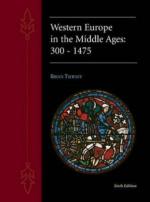|
This section contains 2,190 words (approx. 8 pages at 300 words per page) |

|
Magna Carta (Great Charter) is arguably the most famous document of British constitutional history. King John, who ruled England from 1199 until his death in 1216, signed the charter at Runnymede in 1215 under compulsion by his barons. The significance of Magna Carta lies in the fact that no reigning European monarch, either before or since the charter was issued in 1215, ever guaranteed to honor the rights and privileges of his or her noblemen to so great a degree. Many historians and parliamentarians view the document as one of the earliest democratic statements in western history.
The sources that follow are both anonymous and outline: I. The chain of events leading up to the confrontation between John and his barons at Runnymede; and II. The more notable provisions contained in Magna Carta.
I.
In Easter week of . . . [1215], the . . . nobles assembled at Stamford...
|
This section contains 2,190 words (approx. 8 pages at 300 words per page) |

|




